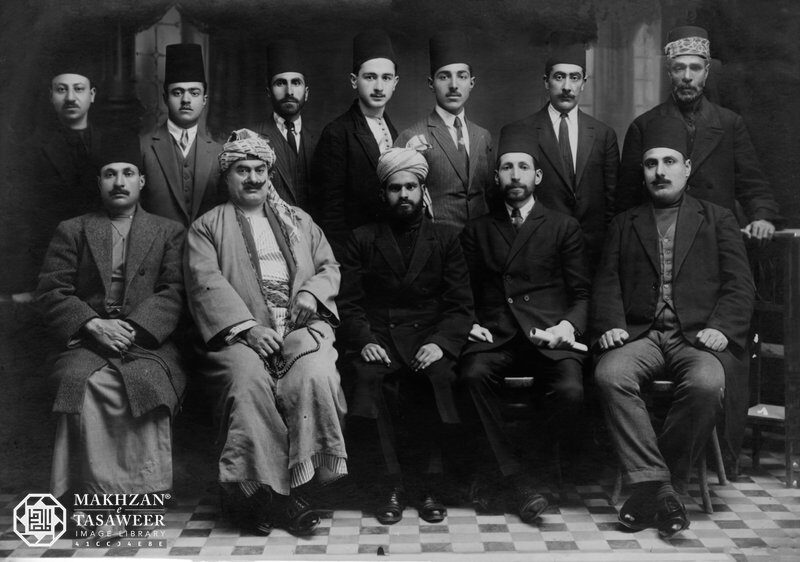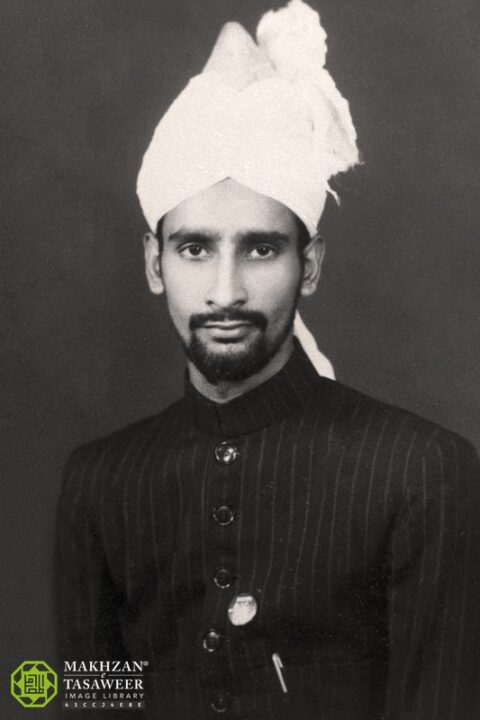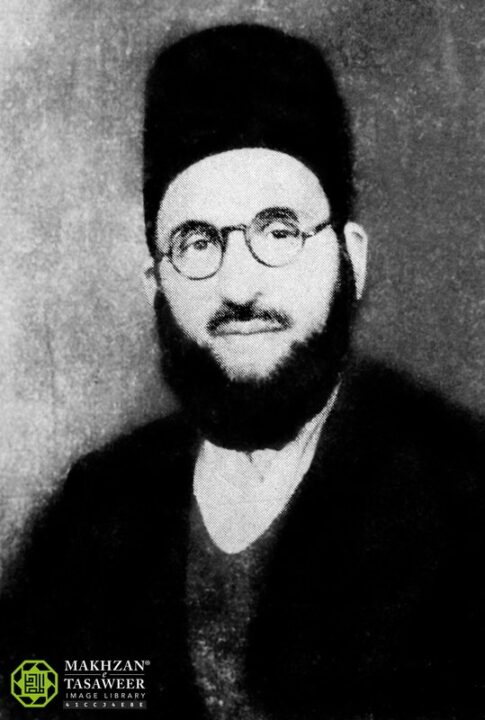A series looking at pioneer missionaries and devotees of the Ahmadiyya Muslim Jamaat who gave precedence to faith over the world.
Awwab Saad Hayat

The sacrifice of the early missionaries of the Jamaat is, simply put, immeasurable. Their efforts, accompanied by the prayers of the Khalifa of the time, witnessed great feats and heights. They employed every opportunity that presented itself and certainly went the extra mile.
Not only did they convey the message of Islam to their surrounding villages and local areas, but they also delivered the message of Islam, with great confidence, to politicians, presidents, rulers, kings and governors of countries. They presented gifts of the Holy Quran and literature on Islam Ahmadiyyat. They gave speeches and enlightened audiences with the exceptional message of the teachings of Islam.
Maulana Muhammad Siddiq Amritsari Sahib
Maulana Muhammad Siddiq Amritsari Sahib served as a life devotee [waqif-e-zindagi] and missionary in various countries. In his memoir, Ruh Parwer Yadain, he writes:

“In December 1959, Secretary-General of the United Nations, Dag Hammarskjöld, first visited Monrovia, the capital of Liberia, while making an official visit to African countries. Remaining there for three days, he studied the political, cultural, and general country conditions of Liberia. Taking advantage of this opportunity, I met with him on 23 December 1959 as the missionary in charge of the Ahmadiyya Mission in Liberia, and personally presented him with a copy of the English translation of the Holy Quran, Teachings of Islam, Ahmadiyya, Life of Muhammad […] I also gave him a typed welcome address, some parts of which he read in front of me and expressed his thanks [for this gesture].” (Ruh Parwer Yadain, p. 534)
Maulana Muhammad Siddiq Sahib writes Dag Hammarskjöld’s secretary sent a message stating that the Secretary-General of the United Nations valued the principles presented by the Holy Quran and expressed his best wishes.
In the same book, Maulana Muhammad Siddiq Sahib, amidst writing about an incident of preaching Islam to the first Prime Minister of the Republic of Congo, stated:
“On the invitation of the President of Liberia, Mr William Tubman on 6 August 1960 the first Prime Minister of the new Republic of Congo, Honourable Patrick Lumumba, visited Monrovia, the capital of Liberia, for four days. A delegation of Ahmadiyya Jamaat Liberia, under this humble one’s leadership, met with him, congratulated him on the independence of Congo and presented to him the English translation of the Holy Quran, Teachings of Islam, and Life of Muhammad.” (Ruh Parwer Yadain, p. 553)
Maulana Muhammad Siddiq Sahib introduced the basic beliefs and teachings of Islam, the history of Ahmadiyyat and the Promised Messiahas and further invited him to accept Islam. He requested he study the Holy Quran carefully. In response, Patrick Lumumba thanked Maulana Muhammad Siddiq Sahib and the delegation for their kind gesture. He said that he was a born Christian and had never considered the beliefs or teachings of the religion of Islam, nor had he ever seen the Holy Quran. He was grateful to the Ahmadiyya delegation for explaining the reality of Islam and for the gift of the Holy Quran.
Hazrat Syed Waliullah Shah Zainul Abidin
In 1924, when Hazrat Musleh-e-Maudra returned from his tour of Europe, he appointed two missionaries to Syria: Hazrat Syed Zainul Abideen Waliullah Shah and Hazrat Maulana Jalaluddin Shamsra.
They left for Damascus, Syria on 27 June 1925 and arrived on 17 July 1925. From there, Hazrat Syed Waliullah Shah Zainul Abidin went to Baghdad at the beginning of 1926, where the Ahmadiyya Jamaat was banned from preaching.
In the account of his trip, he writes that he set out on a journey with his wife and relatives and passed through the Assyrian tribes on the way from Damascus to Baghdad.

On the 10th day of the journey, he reached Baghdad and distributed the Jamaat’s magazine, Al-Haqa’iq ‘an al-Ahmadiyya, while conveying the message of Ahmadiyyat. He narrates:
“My old and dear friend in Baghdad, the late Rustam Haider, was head of the academic committee at Salahuddin Ayubiyah College and a professor of general history. He was educated at the Sorbonne University (France) and is a capable Arabic writer. Allah placed a lot of love and respect for me in his heart. He was very happy about my arrival in Baghdad. He organised various sittings to which respected friends of the city were invited. He was the minister of the personnel department. [Through him] I was introduced to ministers, officials and scholars.
“Even King Faisal [of Iraq] invited me to a feast to which only a few people were invited. During the meal, Rustam Haider mentioned the Ahmadiyya Jamaat in praise and the late King Faisal asked questions about Ahmadiyyat […]. During a detailed discussion about the Dajjal, he asked me the meaning of the verseلَا تُدۡرِكُهُ الۡاَبۡصَارُ ۫ وَهُوَ يُدۡرِكُ الۡاَبۡصَارَ [Eyes cannot reach Him, but He reaches the eyes.] (Surah al-An’am, Ch. 6: V.104) Before answering, he addressed his brother, Ali, and said, ‘Brother, you are a great scholar. What do you understand by this verse?’ The young man explained what he had read in books of tafsir. Then the late king addressed me and asked what I understood from it. I gave him a detailed answer, to which he was so pleased, he instantly said that if Islam was destined to be rejuvenated, it would be through the ideas I [Hazrat Syed Zainul Abideen Waliullah Shah] expressed.
“After the meal, I immediately thanked him and said: ‘Every religion in your country has freedom of preaching, even for the fierce enemies of Islam like the Aryas, yet there is no freedom for the Jamaat, whose views the king has praised.’
“Whilst getting up from the dining table, he said, ‘You shall receive greater freedom than them.’ Later, when Rustam Haider brought me to his house, he had his secretary type a request in Arabic, which I signed. It was then presented to the king […] this request was circulated in offices for three months and eventually, after many disappointments, one evening, after we had offered our Maghrib prayer, an official messenger came and handed a envelope to Jafar Sadiq, the late amir of the Jamaat. It contained an intimation from the Ministry of Home Affairs with the king’s seal that their previous order was revoked by the king and full (religious) freedom was granted to the Ahmadiyya Jamaat. After hearing these words, members present in Maghrib prayer prostrated at once as their state of despair had reached a limit.’” (Masalih al-Arab, Volume 1, pp. 171-172)
Appreciating the diplomatic efforts of Hazrat Syed Zainul Abideen Waliullah Shah, Hazrat Khalifatul Masih IIra said:
“‘In my opinion, Shah Sahib has done a splendid job,” Huzoorra said this achievement, politically, had a far-reaching effect. Huzoorra added that prior to this incident, it was very difficult to preach there. It was also forbidden to hold meetings in homes. Huzoorra said this feat, achieved by Hazrat Syed Zainul Abideen Waliullah Shah, was no small task. With this achievement, “‘It will be understood that Ahmadis can change the opinion of the governments’”, Hazrat Musleh-e-Maudra said. (Masalih al-Arab, Volume 1, p. 172)

